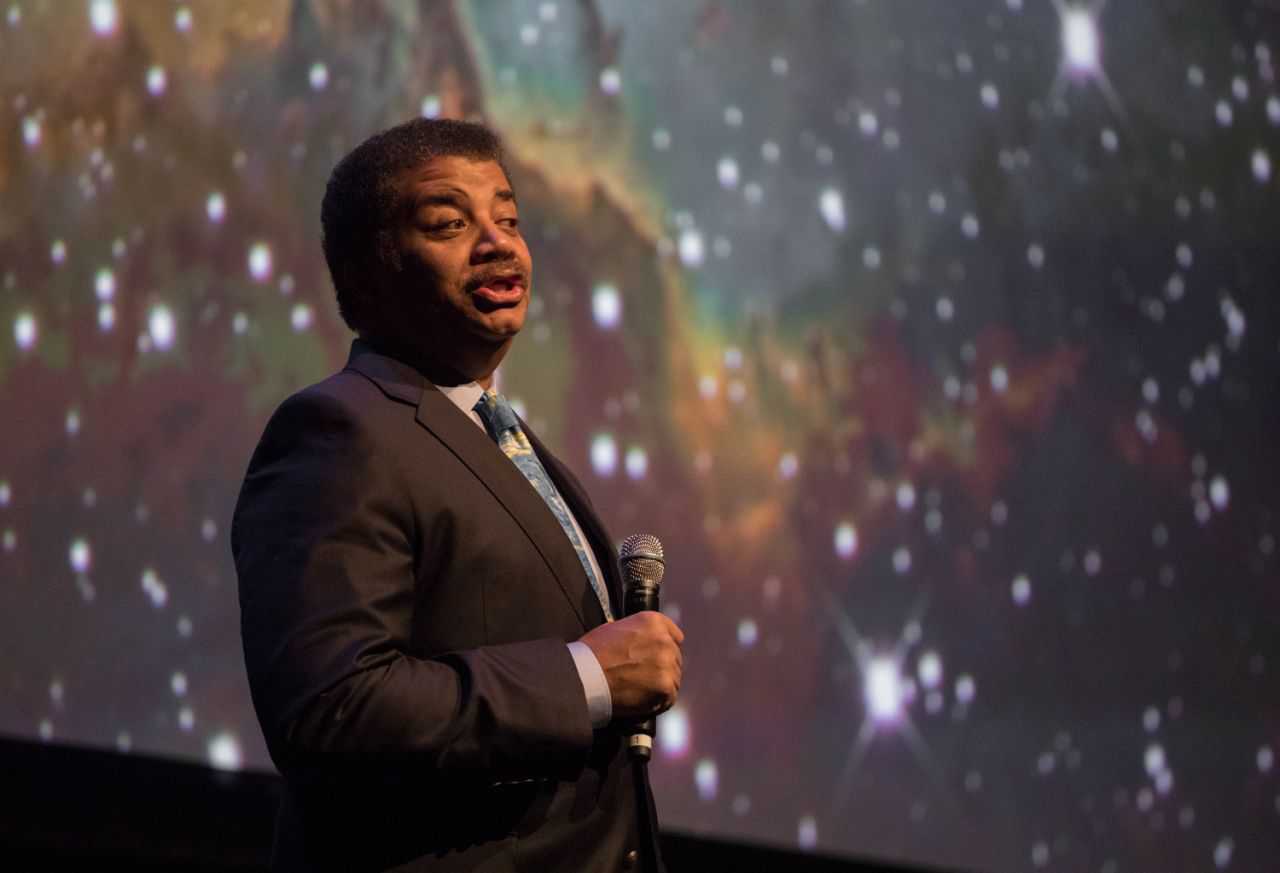Neil deGrasse Tyson says Trump's Space Force could be a 'fatal mistake' if done wrong
14 October, 2018

President Trump raised eyebrows earlier this year when he announced plans to create a “Space Force,” which would become the sixth branch of the military.
Vice President Mike Pence later announced in a speech that the branch was needed in order for the US to maintain military dominance in space. The proposed Space Force is estimated to cost $13 billion in its first five years.
And despite some snickers among political observers, renowned astrophysicist Neil deGrasse Tyson doesn’t think the Space Force is that crazy of an idea. But Tyson, one of the authors of “Accessory to War: The Unspoken Alliance Between Astrophysics and the Military,” has a note of caution.
“Just because it came out of Trump’s mouth doesn’t mean it’s crazy,” he said this week on Midday Movers (video above). “But, if while doing this, you do not continue to invest in innovations in science and technology, you are making a fatal mistake that will compromise the future health, wealth and security of the nation.”
“And we’ll continue — it’s not a cliff edge,” he said. “It’s a fade. One day, you wake up and say, ‘No one is asking us to have a seat at the table. Japan, China, and Russia are mounting this mission to Mars, and they didn’t even invite us.’”
While detailing the administration’s plans for the Space Force, Pence cited threats by Russia and China as reasons why the new military branch is necessary.
A different state of mind
Tyson doesn’t think the US has the ability to keep up, at least for now, despite the fact that NASA’s budget for 2018 is roughly $19.1 billion.
“We don’t have a spaceship that can take anybody into space today,” he said. “We’re hitching a ride on the Russian Soyuz capsule to get our own damn space station.”
And that is how the fade begins, Tyson said, when you wake up and realize that the US is no longer relevant on the world stage.
“It’s a really different state of mind than I had growing up being shaped in 20th century America, where we did what we wanted,” he said. “No one denied the objective truths of science. They used science as advice to make policy, not science as something to combat.
“What’s next?” he asked. “We’re going to say, ‘I gained three pounds last week. I want to repeal the law of gravity?’ You don’t have these options when it comes to scientific results. So my biggest fear is that we will have the collapse of the American civilization simply because people are not heeding the advice of informed scientists.”
